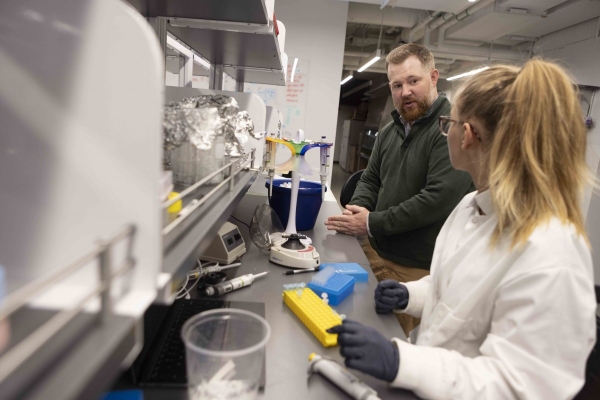Research explores how a warming world could impact ecosystems and derail the development of new species.
New species continue to evolve the world over, as different groups of organisms separate and take divergent paths. What happens when you add climate change to the mix?
That’s the question Assistant Professor of Biological Sciences Thomas H.Q. Powell and his lab seek to answer in “Contrasting effects of warming in diverging insects,” recently published in Ecology Letters.
In the 1850s, the apple maggot fly — a major agricultural pest — began to diverge into two populations in the Hudson Valley. One continued to live on the fruit of the region’s native hawthorn trees. The other shifted to a new food source: apple trees, originally introduced to North America by English colonists.
Read more at Binghamton University
Image: Associate Professor of Biological Sciences at Harpur College of Arts and Sciences Thomas Powell, photographed at his Science 4 laboratory, with his National Science Foundation Research Experience (NSFRE) undergraduate student and biology major and Lexie Greiber, June 16, 2023. (Image Credit: Jonathan Cohen via Binghamton University)


